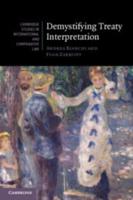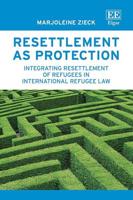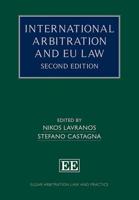Publisher's Synopsis
In recent years, growing attention has been paid to the relationship between international law and aesthetics. This collection situates this relationship within its wider political context, demonstrating that the question of aesthetics in not neutral but rather connected to the social, economic, and political relationships in which international justice is deeply embedded. The first part of the collection is an invitation to reflect on what we see and register in international justice, in particular in representations of those who suffer violence, including the violence of law. The second part of the collection uses different forms to reflect on how aesthetics can be turned against the dominant aesthetics and politics of international law, in the form of ‘counter-aesthetics’ through cartoons, interviews, parables, and a screenplay. This collection is the first of its kind to make visible the dominant and normalized aesthetics of violence and justice through a political economy lens; and to take seriously the limitations of the aesthetic forms that give violence and justice their expression.










